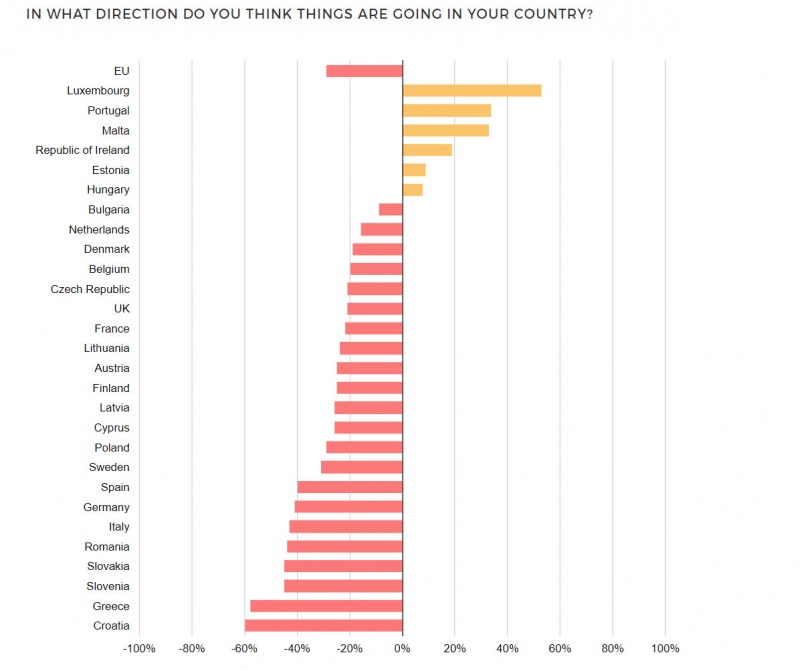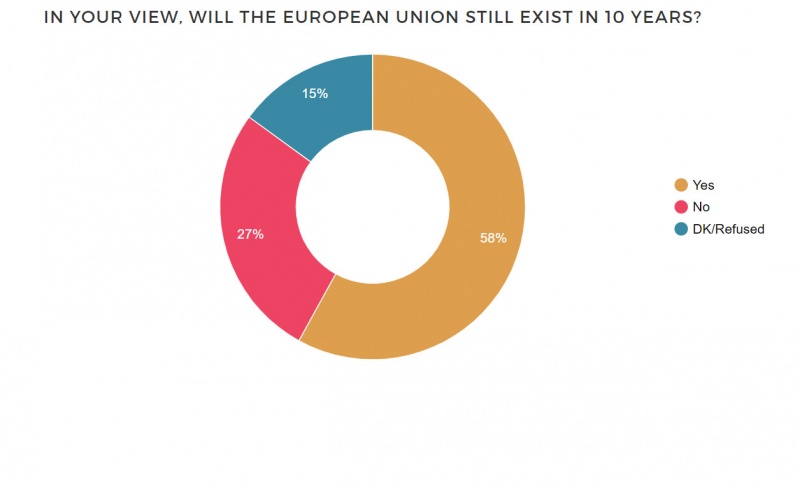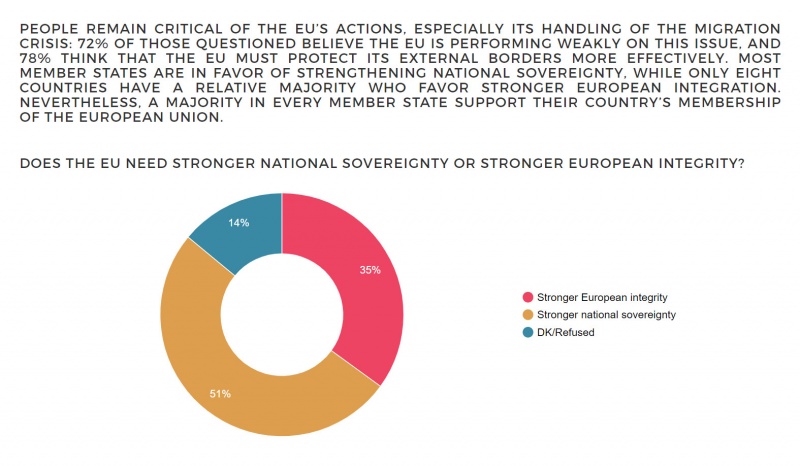Before the soon coming 2019 survey it is worth to look back at the 2018 survey, cunducted by the Hungarian think-tank Századvég.

In the first half of 2016, the Századvég Foundation conducted a public opinion poll survey extending to all 28 member states of the European Union, and aimed at analysing the opinions of EU citizens regarding the issues that most affect the future of the union. By presenting these results, they attempted to reflect on the drivers behind these shifts that Europe faces in order to shed light on what EU citizens think about the continent’s present and future, and what answers and solutions they expect with respect to the challenges continuously facing the European Union.

This survey had a broader scope than any conducted thus far, canvassing 1,000 randomly selected adults in each of the countries, making for a total of 28,000 respondents.
Deemed among the most important objectives of the analysis was to gain an understanding of society’s sense of prosperity and the population’s attitudes in relation to the European Union’s performance, the migration crisis and increasing terrorism.

The results were first published by the Századvég Foundation in June 2016, then commissioned by the Hungarian government, the think tank conducted further research in the spring of 2017. That time the results were published in the British conservative weekly magazine The Spectator and the Hungarian weekly magazine Figyelő.
Europe continues to face key changes today, and its geopolitical and strategic position has changed significantly. At the same time, examining European attitudes may well be a more relevant undertaking now than at any time in the past. Just as in 2016 and 2017, the Századvég Foundation conducted this uniquely comprehensive survey in Q1 2018, focusing on the key topics that influence the European political and social discourse, such as the migration crisis, the connection between illegal immigration and the terror threat, the performance of the EU in various aspects, and the effects of globalization.
In 2019 the survey continues, the newest data will be published soon also on our website.
The full details on the research can be checked at the http://project28.eu website.
